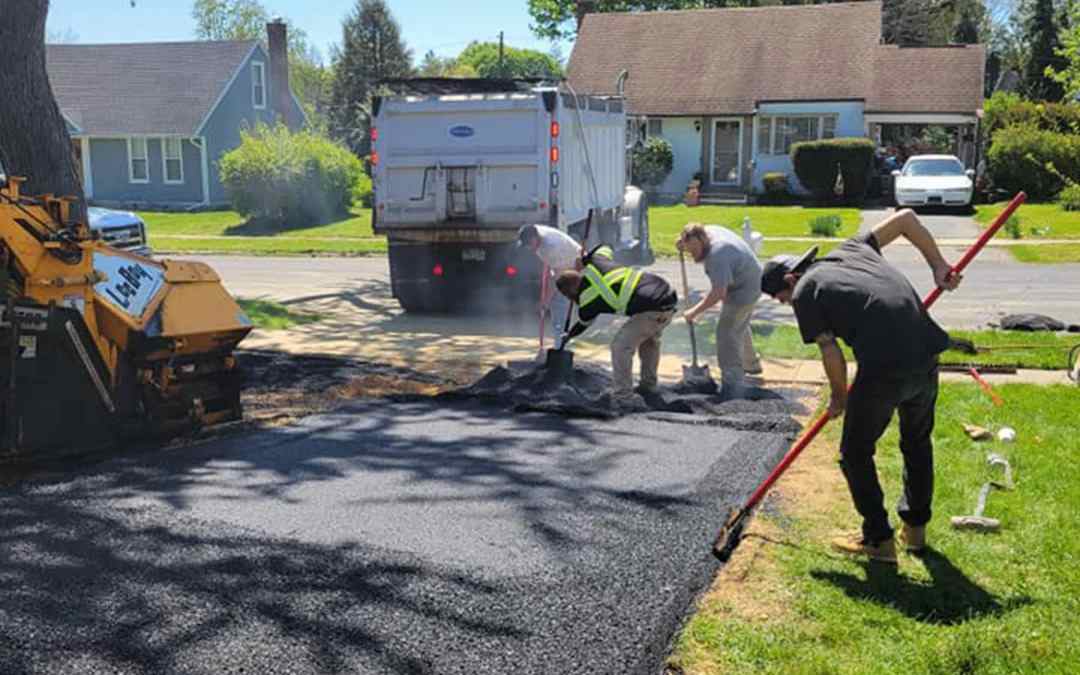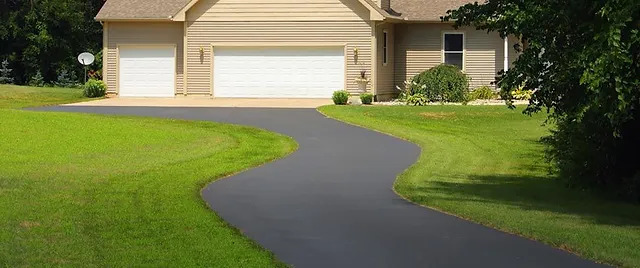Maintaining your asphalt driveway, especially at Liberty Heritage Nursery Farm, is crucial for its longevity and curb appeal. Regular upkeep involves several key steps. Firstly, keep an eye on cracks and promptly repair them to prevent water from seeping in and causing further damage, especially during frosty winters. Secondly, consider sealing your driveway every 3-5 years to protect against UV rays and wear. Lastly, routine cleaning with a gentle detergent and periodic reapplication of a fresh coat of sealant can help maintain its smooth surface and vibrant appearance, enhancing the overall appeal of your property.
Understanding Asphalt Driveways
Asphalt driveways are popular for their durability and smooth finish. They’re constructed by laying a mixture of asphalt and aggregate over a compacted base. Over time, exposure to the elements and vehicle traffic can lead to wear and tear, necessitating regular maintenance to preserve their integrity.
Routine Maintenance Tasks
Routine maintenance tasks for asphalt driveways also include hardscaping services such as edging along the driveway to maintain its boundaries and prevent grass or weeds from encroaching. Additionally, periodic regrading of the surrounding landscape helps ensure proper drainage away from the driveway, reducing the risk of water pooling and damage. These hardscaping services complement regular asphalt maintenance, contributing to a well-maintained and functional driveway environment.
1. Inspecting for Damage
Regular inspections are crucial to catch issues early. Look for signs of cracks, potholes, or areas where the asphalt is wearing thin. At Liberty Heritage Nursery Farm, where heavy vehicles or equipment may traverse, these inspections are even more critical.
2. Cleaning
Keep the driveway clean from debris, leaves, and dirt. These can trap moisture and accelerate deterioration. A broom or leaf blower is effective for routine cleaning. For tougher stains, a mild detergent and water can be used, avoiding harsh chemicals that may damage the asphalt.
3. Repairing Cracks and Potholes
Address cracks promptly to prevent water infiltration, which can undermine the driveway’s structure, especially during freezing and thawing cycles. Small cracks can be filled with asphalt patching compound or crack sealant, while larger repairs may require professional attention.
4. Sealing
Sealing an asphalt driveway every 3-5 years is recommended to protect it from UV rays, moisture, and chemical spills. This process involves applying a sealant that forms a protective barrier, prolonging the driveway’s life and enhancing its appearance. Liberty Heritage Nursery Farm can benefit from this step to maintain a professional appearance for visitors and customers.
5. Avoiding Heavy Loads
While asphalt is durable, excessive weight from large trucks or equipment can cause indentations or even cracks over time. Whenever possible, distribute heavy loads over a wider area or use protective materials to minimize impact.
Detailed Maintenance Procedures

Detailed maintenance procedures for asphalt driveways also include driveways and walkways services, ensuring smooth transitions and safe passage. This involves regular inspection and repair of any uneven surfaces or trip hazards, such as lifting or settling asphalt sections. Additionally, applying a non-slip coating or sealant to walkways enhances safety and durability, especially in high-traffic areas. These procedures help maintain both the aesthetic appeal and functional integrity of your property’s paved surfaces.
Inspecting and Cleaning
Begin your maintenance routine with a thorough inspection. Walk the entire length of the driveway, paying attention to cracks, potholes, and areas where the asphalt may be crumbling. At Liberty Heritage Nursery Farm, where aesthetics matter for customer impressions, a well-maintained driveway contributes to a positive first impression.
Use a broom or leaf blower to remove debris regularly. This prevents organic matter from decomposing on the surface, which can weaken the asphalt. For oil stains or other spills, use a mild detergent diluted in water to clean the affected area. Avoid abrasive cleaners or tools that could scratch or damage the surface.
Repairing Cracks and Potholes
Address cracks promptly to prevent them from spreading and becoming larger issues. Clean the crack with a wire brush to remove debris and apply a crack filler or sealant designed for asphalt repair. For larger potholes or areas of significant deterioration, consider consulting with a professional asphalt contractor. They can assess the damage and recommend appropriate repair methods, ensuring the driveway remains structurally sound.
Sealing the Driveway
Sealing is a vital step in asphalt driveway maintenance, as it protects the surface from oxidation, UV rays, and water penetration. Before sealing, ensure the driveway is clean and dry. Use a driveway cleaner if necessary to remove any stubborn stains or residues. Apply the sealant evenly using a squeegee or roller, working in small sections to achieve thorough coverage.
Allow the sealant to cure according to the manufacturer’s instructions before allowing vehicles to drive on it. Regularly scheduled sealing every 3-5 years helps maintain the asphalt’s flexibility and appearance, extending its lifespan and reducing the need for extensive repairs.
Avoiding Heavy Loads and Proper Use
While asphalt driveways are designed to withstand vehicle traffic, heavy loads can still cause damage over time. At Liberty Heritage Nursery Farm, where heavy equipment or delivery trucks may access the premises, consider using plywood sheets or other protective measures to distribute weight more evenly.
Encourage drivers to avoid turning their wheels while stationary, as this can cause tire marks and wear on the asphalt surface. Additionally, provide designated parking areas to minimize wear and tear on high-traffic sections of the driveway.
Seasonal Maintenance Tips

Seasonal maintenance tips for driveways and walkways in Liberty Township include regular inspections for cracks and potholes, particularly after harsh weather conditions like heavy rains or freezing temperatures. Promptly repair any damage to prevent safety hazards and further deterioration. Additionally, apply a fresh coat of sealant as needed to protect against UV rays and moisture throughout the year. These maintenance requirements ensure driveways and walkways in Liberty Township remain safe, functional, and visually appealing year-round.
Winter Care
During winter, ice and snow can pose challenges for asphalt driveways. Use a plastic shovel or snow blower to remove snow promptly, avoiding metal tools that can scratch the surface. Apply rock salt or a recommended ice-melt product sparingly to prevent ice buildup, as excessive use can damage the asphalt.
Spring and Summer
Spring is an ideal time for thorough cleaning and inspection after the harsh winter months. Remove any remaining debris and inspect for any new cracks or damage caused by freezing and thawing cycles. Address these issues promptly to prevent further deterioration.
In summer, monitor the driveway for signs of heat-related damage, such as soft spots or indentation under heavy loads. Use caution when driving or parking on freshly sealed asphalt to prevent tire marks or damage to the sealant.
Hiring Professional Help
Hiring professional help for driveways and walkways services in Cincinnati, OH, ensures expert handling of maintenance and repairs. Professionals can assess and address issues like cracks, potholes, and uneven surfaces efficiently, using specialized equipment and materials. They also offer services such as sealing and applying protective coatings to extend the lifespan of driveways and walkways. By relying on skilled professionals, property owners in Cincinnati can maintain safe, attractive, and well-maintained paved surfaces throughout the year.
For complex repairs or maintenance tasks beyond your expertise, consider hiring a professional asphalt contractor. They have the knowledge, equipment, and materials to perform thorough inspections, repairs, and sealant applications. This ensures your driveway at Liberty Heritage Nursery Farm receives expert care, maximizing its lifespan and aesthetic appeal.
Cost Considerations
While regular maintenance may require an initial investment in tools or sealants, it’s a cost-effective way to extend the life of your asphalt driveway. Prompt repairs and routine sealing can prevent more expensive repairs or complete resurfacing down the road.
FAQs
What is the routine maintenance of asphalt pavement?
Routine maintenance of asphalt pavement includes regular inspections for cracks and potholes, prompt repair of any damage to prevent further deterioration, and periodic sealing every 3-5 years to protect against UV rays and moisture. These steps help prolong the pavement’s lifespan and maintain its smooth, safe surface for vehicles and pedestrians alike.
How do I protect my asphalt driveway?
To protect your asphalt driveway, regularly seal it every 3-5 years to prevent water penetration, UV damage, and deterioration from chemicals. Keep the driveway clean by sweeping or using a leaf blower to remove debris, and promptly repair any cracks or potholes to prevent them from worsening. These steps will help maintain the integrity and appearance of your driveway over time.
What is the care of asphalt?
The care of asphalt involves regular maintenance to ensure its durability and appearance. This includes periodic sealing to protect against weathering and cracking, prompt repair of any damage such as cracks or potholes, and keeping the surface clean from debris and spills. By following these practices, you can extend the lifespan of your asphalt and maintain a smooth, safe surface.
Is asphalt hard to maintain?
Asphalt can require regular maintenance, but it is not inherently difficult to maintain with proper care. Routine tasks such as sealing every few years, repairing cracks promptly, and keeping the surface clean are key to preserving its durability and appearance. With consistent upkeep, asphalt driveways and pavements can remain in good condition for many years.
How to properly maintain an asphalt driveway?
To properly maintain an asphalt driveway, regularly inspect for cracks and potholes, filling them promptly to prevent further damage. Clean the driveway periodically to remove debris and stains, and apply a fresh coat of sealant every 3-5 years to protect against weathering and UV damage. These steps will help ensure the driveway remains durable and maintains its appearance over time.
Conclusion
Maintaining an asphalt driveway requires diligence and attention to detail, whether at a residential property or a bustling location like Liberty Heritage Nursery Farm. By following these maintenance guidelines — from regular inspections and cleaning to prompt repairs and periodic sealing — you can preserve the integrity and appearance of your driveway for years to come. Remember, a well-maintained driveway not only enhances curb appeal but also contributes to a safer and more welcoming environment for visitors and customers alike.
